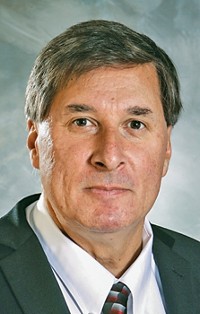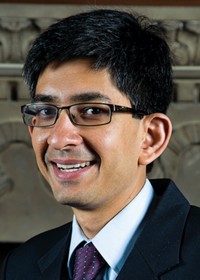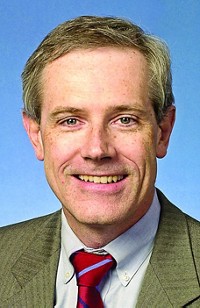Advertisement
Grab your lab coat. Let's get started
Welcome!
Welcome!
Create an account below to get 6 C&EN articles per month, receive newsletters and more - all free.
It seems this is your first time logging in online. Please enter the following information to continue.
As an ACS member you automatically get access to this site. All we need is few more details to create your reading experience.
Not you? Sign in with a different account.
Not you? Sign in with a different account.
ERROR 1
ERROR 1
ERROR 2
ERROR 2
ERROR 2
ERROR 2
ERROR 2
Password and Confirm password must match.
If you have an ACS member number, please enter it here so we can link this account to your membership. (optional)
ERROR 2
ACS values your privacy. By submitting your information, you are gaining access to C&EN and subscribing to our weekly newsletter. We use the information you provide to make your reading experience better, and we will never sell your data to third party members.
Environment
George A. Olah Award In Hydrocarbon Or Petroleum Chemistry
by Ann M. Thayer
January 7, 2013
| A version of this story appeared in
Volume 91, Issue 1

Sponsored by the George A. Olah Award Endowment
Alexis T. Bell has been a leader in the fields of heterogeneous catalysis and hydrocarbon chemistry for more than 40 years. He has pioneered advances in understanding the synthesis and conversion mechanisms of hydrocarbons on catalytic surfaces.
Known as “an advocate for theory as the enabler of experiment,” he has contributed both conceptually and practically to the field, according to colleagues.
“He is one of the few researchers in the catalysis and surface science communities today who is a world-class leader in both the experimental and theoretical aspects of surface chemistry and catalysis,” University of Wisconsin professor James A. Dumesic says.
As a result, Bell has become a recognized expert in elucidating the mechanisms and kinetics of catalytic reactions and the structures and elementary processes required for surface reactivity in hydrocarbon conversions.
He has pioneered the use of Raman spectroscopy as a probe of structure and function of oxide nanostructures in the oxidation of alkanes and alkanols. Using ultraviolet-visible and X-ray absorption spectroscopies, combined with kinetic and isotopic methods, he provided the first rigorous description of the mechanism and site requirements, as well as accurate counts of active sites, to determine the consequences of atomic cluster size in reactivity.
He has extended his studies of Fischer-Tropsch synthesis with important contributions to methanol synthesis, determining the critical role of metal oxide promoters. His research group has also developed catalysts with unprecedented reactivity and stability for nonoxidative dehydrogenation of alkanes.
On the theoretical side, his efforts have led to methods to locate transition states relevant to hydrocarbon transformations and to ab initio probes of chemical dynamics. This work complements his earlier studies of the thermodynamics and dynamics of adsorption and diffusion in confined structures, such as zeolites. He has also developed first-principles models for alkane cracking and ethylene alkylation of benzene within solvating environments.
Bell’s research on epoxidation reactions has advanced mechanistic descriptions of alkene epoxidation on metal porphyrins to incorporate ligand and solvent effects on reactivity and selectivity. Colleagues say the work illustrates his ability to choose important problems for study and then not only provide specific solutions but also contribute general knowledge that redefines a field.
Currently Dow Professor of Sustainable Chemistry in the department of chemical and biomolecular engineering at the University of California, Berkeley, Bell, 70, has spent his career at the university. He has served as both chairman of the department and as dean of the College of Chemistry. He also is a faculty senior scientist at the Department of Energy’s Lawrence Berkeley National Laboratory.
Bell joined the UC Berkeley faculty after completing his bachelor’s and doctorate degrees at Massachusetts Institute of Technology. As he embarked on his academic career, he began building the foundation of what would become a tremendous body of work, represented today by more than 580 publications on various aspects of heterogeneous catalysis and chemical reaction engineering.
Bell will present the award address before the ACS Division of Catalysis Science & Technology.





Join the conversation
Contact the reporter
Submit a Letter to the Editor for publication
Engage with us on Twitter